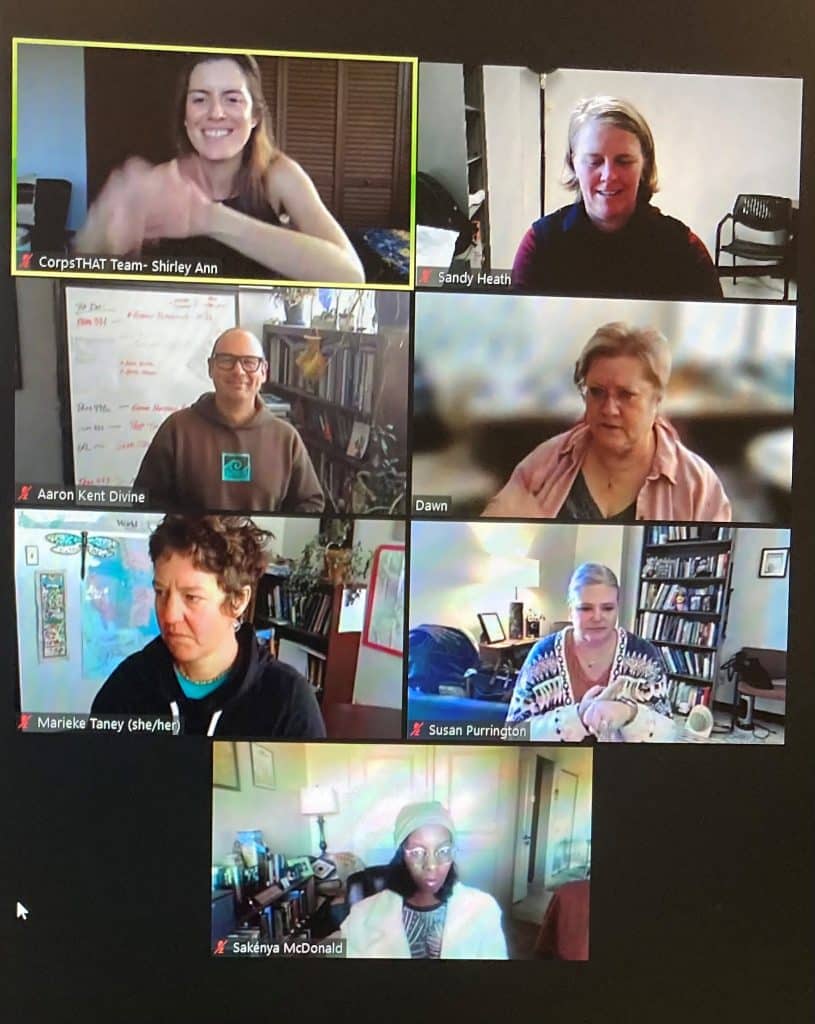Twice a week, professors in NAU’s Parks and Recreation Management program log into Zoom—not to discuss work, but to learn sign language.
The group of eight enrolled in an American Sign Language (ASL) class together in hopes of creating a more inclusive environment in their classrooms.
“As faculty, I have been lucky to have more than one student from the deaf community in my classroom, and it is wonderful to communicate directly,” said assistant professor Sandy Heath. “Recreation professionals often work directly with the public. Having the skillset to greet someone in their language is a great way to show they are welcome in that space.”
The 10-week online program is put on by CorpsTHAT, a nonprofit organization whose mission is to connect the deaf community and the outdoors through education, recreation and careers. Heath was familiar with the program before she joined NAU last summer and decided it would be a great opportunity for her and her colleagues to learn a new skill together. With the support of the department chair and partnership with the Institute of Human Development, the Geography, Planning and Recreation department sponsored the education courses for the interested faculty.
“Our instructor, Shirley Ann, is amazing! She is so funny and kind to us as we adapted to learning in a totally visual environment (no talking),” Heath said. “Getting an opportunity to bond with my colleagues twice a week and learning a skill together is such a fun way to become close with others. It has been a blast.”
The professors keep up with their skills inside and outside their classrooms—practicing with hearing-impaired students in class and with each other in the hallways. One professor even teaches their newly acquired ASL knowledge to their 4-year-old at home.
“I think we are learning a new skill, but beyond that I have heard a variety of other interrelated benefits from others,” Heath said. “One of my colleagues mentioned how eye-opening it was to enter a visual environment as a student and how this might help her teach in the future to make more inclusive choices when designing curriculum. Another colleague mentioned how useful learning ASL was to her own hearing and noticed that signing is a great way to chat with someone from across a room.”
As the course wraps up, Heath knows this is just a starting point. She has discussed research that could be useful to the parks and recreation field with CorpsTHAT. And several of the professors are already planning to take the next level ASL course.
“We are pumped to keep going—for ourselves and our students!”



